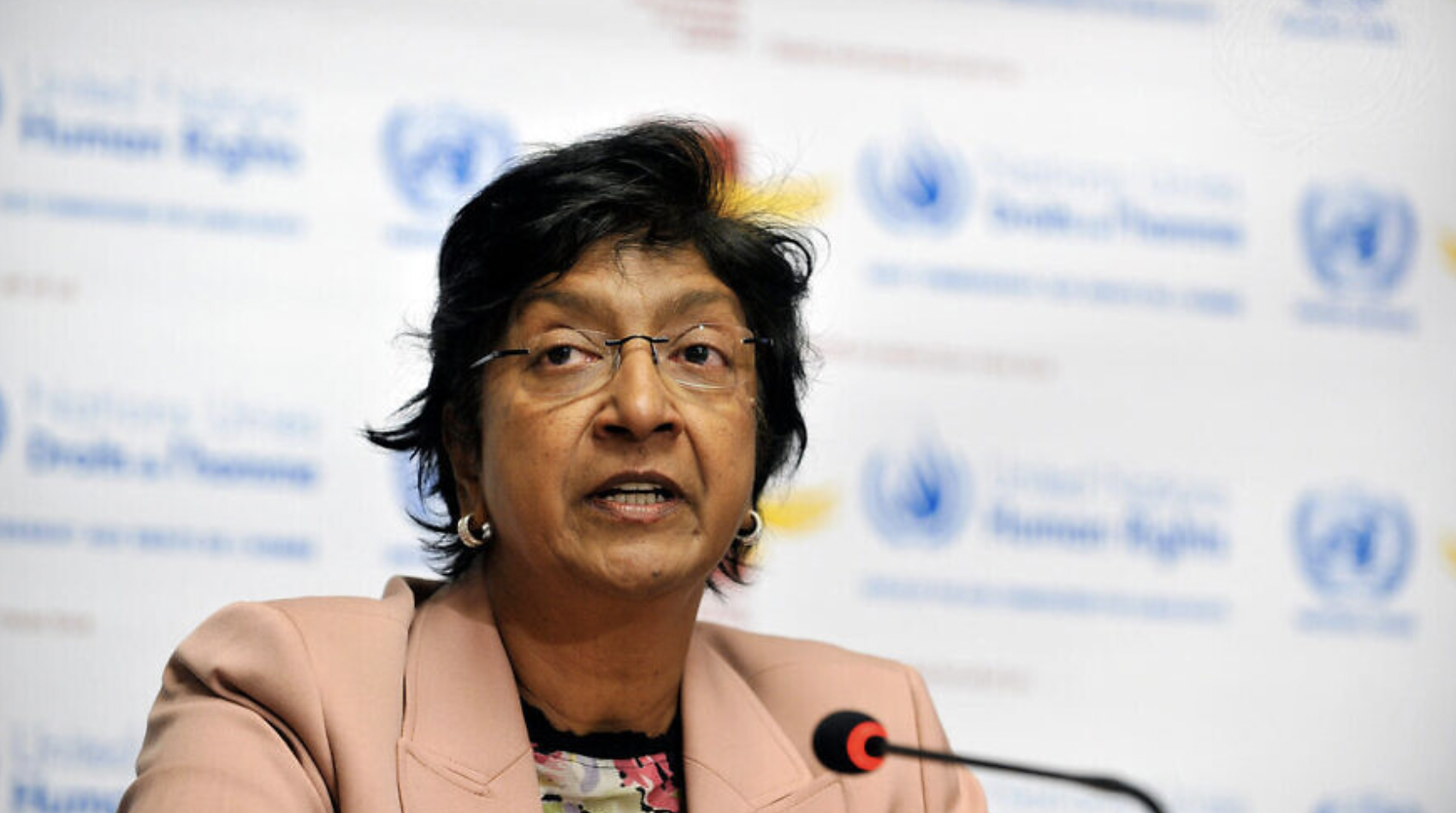The controversial, open-ended United Nations Commission of Inquiry into alleged human rights abuses by Israel and the Palestinians said Thursday it will investigate charges of “apartheid” against Israel. Thus far, the commission’s two reports, including one presented to the U.N. General Assembly on Thursday, has focused almost solely on Israel, furthering concerns about the one-sided nature of the inquiry and biases among its three members.
The commission’s latest report calls on the U.N. Security Council to force an end to Israel’s “permanent occupation,” and urges U.N. member states to prosecute Israeli officials.
At a press conference with the three commission members on Thursday, JNS asked COI chairwoman Navi Pillay how, given her past rhetoric about Israel, including her declaring it an apartheid state and her advocacy for BDS, she could conceivably pitch her commission as being impartial, which is required for U.N. fact-finding missions. JNS cited her signature on a letter to U.S. President Joe Biden three weeks before Pillay’s appointment to the COI, calling for the White House to punish Israel.
“Well, it’s all news to me that I have done all this. I have signed no petition or made no statement,” said Pillay. When JNS countered that the letter and her statements are all on record and documented, Pillay replied that she would “like to see it. I’ve never seen it. You know, because then maybe somebody has used my name, I want to know. I recall one statement I made in South Africa because the press were there and they asked me about BDS, for instance. And I said that that was a strategy that worked in South Africa.”
She accused her critics of “twisting” her words into a campaign for BDS, and said her investigation is all based on international law. She and fellow COI member Miloon Kothari, who earlier this summer apologized for anti-Semitic comments, lobbed blame on Israel for not cooperating with the investigation.
COI member Chris Sidoti told JNS that while the two reports issued thus far have been one-sided, “What I find irritating, to be very frank, is that we are restricted to writing 10,700 words in reports for the Human Rights Council and the General Assembly, including footnotes, including footnotes. And there seems to be this expectation that we will deal with every single issue immediately. And when someone’s pet issue is not there, that’s something to condemn us for.”
He claimed the advantage of the COI’s unique open-ended mandate is that it gives it time to deal fully with the conflict and pledged that “in our report next June to the Human Rights Council, which we are already working on, there will be more comprehensive coverage of a number of thematic issues than what we have been able to do in the reports to date. So be patient.”
JNS also asked the commission members about their reports thus far laying blame solely at Israel’s feet for its “occupation” of Palestinian territory. Pointing out that Israel ceded Sinai to Egypt, withdrew from Gaza, dismantled settlements in northern Samaria and that very day signed a maritime border agreement with an enemy state, all in pursuit of peace, JNS asked the commission members if they ask themselves why there is little to no context included about the dual-sided nature of the conflict, and instead the onus is simply placed by the COI on Israel to unilaterally withdraw from Judea and Samaria and eastern Jerusalem.
“I think your question alerts us to how vast this is, when you’re asked to look at the root causes,” said Pillay. “And it’s a matter of concern to us that, yes, we explain the entire context from the time it’s started. We said in our report this morning that we don’t see any significant activities to end the occupation, but we are not ignoring significant steps that have been taken in the past, such as moving out of Gaza and so on. So we will be addressing those quite comprehensively.”
Kothari questioned whether Israel has withdrawn from Gaza, given its blockade of the terrorist-controlled territory, but the COI has made no mention of a similar blockade imposed by Egypt for security purposes.
When asked whether they ever question why Israel feels the need to secure itself with a blockade of Gaza and operate in Judea and Samaria, given its past pursuits of peace elsewhere, Kothari demurred, saying that, “If we are allowed into Israel, we’ll ask the relevant officials and the military these questions.
Pillay added, “We’re asking for meetings with representatives, and they are in a position to tell us what they’ve done. We really want to do accurate reporting here on all the activities. That would be one of the reasons why we asked for a meeting with the ambassador of Israel in Geneva and here. That’s the reason. Give us your side of the story because we want to represent facts fairly.”
Israel has refused to cooperate with the commission and has not granted it entry into Israel or access to Palestinian-controlled areas in Judea and Samaria or Gaza. It vehemently rejects the findings of the COI, calling the panel illegitimate and not credible. On Thursday, Israel’s Ambassador to the U.N. Gilad Erdan said the panel’s members were chosen because they “abhor” Israel. Israeli government officials have been preparing for what they say is the inevitable conclusion that the COI will label Israel and apartheid state and recommend war crimes charges against it.
The three members of the commission have been harshly critical of Israel in the past, and Israel has said the investigation is prejudiced and anti-Semitic. The U.S. has blasted the COI, as well, and multiple U.N. member states backed that position during comments at the General Assembly on Thursday.

























